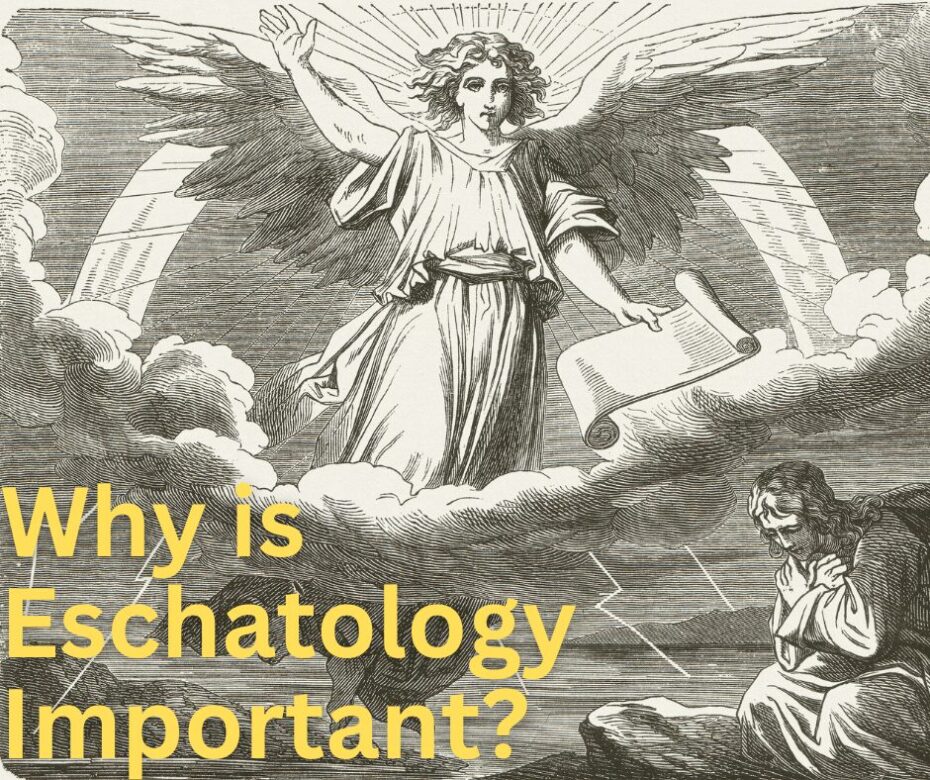There are many areas of debate within the theological world. The study of end times, or eschatology, is particularly noted for its divisiveness. In fact, it has caused such deep division that many pastors avoid the topic altogether. The well-known preacher Charles Spurgeon went so far as to say the topic was mostly a waste of time.
However, the Lord’s Second Coming is far from a minor issue. It is a theme found throughout the Scriptures. For example, the prophets Isaiah and Daniel emphasized the Lord’s coming kingdom and end-time events (Isaiah 14; Dan 12:1-3). The NT books of Revelation, 1 and 2 Peter, and large portions of 1 Thessalonians deal with end times, and many key passages in the Gospels do as well. Rather than avoid the topic, the Apostle Peter stated:
Beloved, I now write to you this second epistle (in both of which I stir up your pure minds by way of reminder), 2 that you may be mindful of the words which were spoken before by the holy prophets, and of the commandment of us, the apostles of the Lord and Savior, 3 knowing this first: that scoffers will come in the last days, walking according to their own lusts, 4 and saying, “Where is the promise of His coming? 2 Pet 3:1-4a (emphasis added).
In contrast to Spurgeon, the apostle states that the promise of the Lord’s Second Coming should consistently be on our minds. Those in the Church should stir up one another with the reminder of the Lord’s promise. While scoffers will come and mock those who teach about the Lord’s coming, we should have our eyes fixed upon His soon return. Peter also points us back to the words of the prophets, apostles, and the teachings of Christ. This promise is repeatedly validated by the Scriptures.
In short, the Lord’s Second Coming is an essential piece of doctrine worthy of our time and meditation. If we become forgetful of this promise, I think our mindset will become muddy. The Scriptures provide a few examples of how believers can experience a muddy mindset due to various misunderstandings of the Lord’s return.
Believers can totally reject the doctrine. In the case of 2 Peter, the apostle is dealing with false teachers who are rejecting the Lord’s promise to return at all. If his believing readers were to follow these false teachers, they could expect destruction and the loss of rewards.
Believers can adopt the attitude that the Lord is not coming back for a long time. In Matthew 24, the Lord is discussing His Second Coming (24:3). In vv 45-51 He gives a parable that describes the outcome for a believer who is waiting for His return. Such a believer will be rewarded and will rule with the King in the coming age (vv 45- 47). However, in the same parable the Lord gives the alternative option for that believer. If that believer is unfaithful, he will be rebuked and will lose the honor of reigning with the Lord (vv 50-51). What is noteworthy is the catalyst for the servant’s unfaithfulness. In v 48, the servant states:
My master delays His coming.
Unlike the danger in 2 Peter, this is not a total rejection of the Lord’s return. In this example the believer has a muddy mindset because he thinks he has time. This leads him into a carnal lifestyle and a rebuke from the Lord at His return. This kind of believer is described by Peter as a pig that has been cleaned but returns to rolling around in the mud (2 Pet 2:22).
Another muddy mindset that believers can fall into when it comes to the Lord’s return is thinking they can predict His coming. Throughout church history there have been many false prophets who have claimed that they knew when the Lord would return. Most notably, in 1844, there was a movement led by William Miller, who claimed the Lord would return on Oct 22, 1844. Many Christians believed him, sold their homes, and quit their jobs. Of course, the Lord didn’t return, and many hard-working believers lost everything due to Miller’s heresy. This event would become known as the Great Disappointment due to the heartbreak it caused. If these believers had only gone to the Word, they would have known that no one knows the day or hour (Matt 24:36).
Even a casual glance at the Scriptures shows that the study of the Lord’s coming is worthy of our attention. The lack of knowledge in this area can have a catastrophic impact on our Christian experience. However, if our mindset is focused on His return, there is great reward. As Paul stated:
Now there is in store for me the crown of righteousness, which the Lord, the righteous Judge, will award to me on that day—and not only to me, but also to all who have longed for his appearing. 2 Tim 4:8

